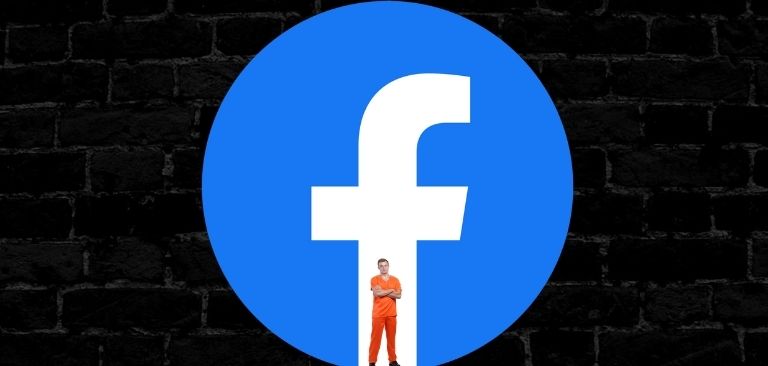With all the censorship in social media, and left-wing government representatives calling for “editorializing” social media posts, folks are now thinking it will eventually bleed off into email correspondence.
I mean let’s face it – social media platforms (such as X, Facebook, Instagram, and others) were originally meant to be nothing more than a passive conduit for you to chat with friends and meet new people. Now all conversations are carefully monitored, scrutinized, censored, and tracked. Not only is this intended to re-target you for advertising, but to remove anything politically incorrect. All your “friends” have to do is block you, but the government doesn’t think that’s enough. They have declared several times they want social media content editorialized, and tracked (recorded). So, why would email be different?
Let’s not forget business correspondence, and financial documents. You may be sending critical information for business through your email, with attachments that if they end up in the wrong hands could have huge consequences. Consider the amount of identity theft, and credit fraud, happening today. All it takes is one person intercepting your email.
Using private email providers instead of more popular providers from big tech companies is critical for those who prioritize privacy and data security. Using your ISP email platform may be private, but rarely is that the case. Private providers typically offer enhanced security features, including encryption, which ensures that only the sender and recipient can read the contents of an email.
Unlike major tech providers, which may scan emails for data to tailor advertisements or share information with third parties, private email services often have strict policies against data mining and sharing.
Going with a private email platform could be extremely important in an era of increasing digital surveillance, monitoring, and recording, providing users with peace of mind and protecting sensitive communications from prying eyes. Email is already programmatically tracked, and it’s only a matter of time until it’s being censored as well.
Here are our Top 5 Picks for Private Email Providers where privacy is a priority!
Proton Mail
ProtonMail is considered by most as the top choice. Proton is famous for its robust privacy features, offering end-to-end encryption ensuring only the sender and the recipient can read the contents of emails.
Based in Switzerland, it benefits from some of the world’s strictest privacy laws, further safeguarding user data. ProtonMail does not log personally identifiable information at the time of registration, allowing for anonymous account setup. The service also stands out for its user-friendly interface and compatibility with other email providers while maintaining high security standards.
ProtonMail’s commitment to not tracking or profiling its users makes it a preferred choice for those seeking a secure and private email solution.
Tuta
Tuta is a secure email service that emphasizes privacy and security for its users. It’s known for its end-to-end encryption, which ensures that only the sender and the recipient can access the contents of an email, protecting it from third parties, including Tuta itself. This encryption extends to email contacts and calendar entries as well.
One of the key features of Tuta is its adherence to strict privacy laws, including the General Data Protection Regulation (GDPR) of the European Union. This compliance ensures a high level of data protection and privacy for users, particularly beneficial for those concerned about government surveillance or data mining by corporations.
Tuta also offers a free version, making encrypted email accessible to everyone, and has paid versions with additional features like expanded storage and custom domain support.
However, there are some limitations to Tuta. Its focus on security can lead to less convenience compared to more mainstream email services. Features like third-party email client support and the ability to import emails from other services are limited or non-existent. The encryption also means that certain functionalities, like searching the text of emails, are more restricted than in non-encrypted email services.
Mailfence
Mailfence is a secure and private email service that champions data protection and user privacy. Unlike mainstream email providers, it doesn’t track user activity or display ads. Its robust end-to-end encryption ensures that only the sender and recipient can read the contents of an email, safeguarding sensitive information from unauthorized access.
Mailfence also supports digital signatures, adding an extra layer of authenticity and integrity to communications. Its integrated suite of features includes calendar, contacts, and document storage, facilitating seamless collaboration. Additionally, Mailfence operates under strict Belgian privacy laws, offering users further assurance that their data remains protected from undue surveillance.
Runbox
Runbox is a robust email service known for its strong commitment to privacy and security. Based in Norway, it benefits from strict Norwegian privacy laws, making it a secure choice for users concerned about data protection.
Runbox offers full end-to-end encryption, ensuring that emails remain private and secure from interception. It supports IMAP, POP, and SMTP, making it highly compatible with various email clients and devices, which enhances user flexibility.
Additionally, Runbox has a strong focus on sustainability, running its servers on renewable energy sources. It also offers a range of features including web hosting and domain registration, making it a comprehensive solution for personal and business communication needs.
Mailbox.org
Mailbox.org is a secure email service based in Germany, known for its strong commitment to privacy and security.
Leveraging Germany’s stringent data protection laws, it offers comprehensive encryption for both email and data storage, ensuring user information remains confidential. Mailbox.org allows users to send encrypted emails easily, even to recipients who do not use encryption, enhancing communication security across platforms. The service includes an array of features such as calendar, address book, and cloud storage, all encrypted for additional security.
Furthermore, Mailbox.org is committed to sustainability, running on eco-friendly energy sources. Its ad-free interface provides a clean user experience, focusing purely on functionality and user privacy.
Private Email Alternative: Prevail
With PreVeil, you get free end-to-end encrypted secure cloud storage along with secure email that’s extremely easy to use, all while keeping your existing email address. Prevail integrates with existing email accounts like Gmail or Outlook to encrypt emails without requiring a new address. It’s common use is protecting sensitive information in business communications by encrypting emails with high security standards.
PreVeil is not considered a good option for disposable email addresses; it’s primarily designed as a secure email encryption service, allowing users to send and receive encrypted emails using their existing email addresses, making it more focused on privacy and data security than creating temporary, disposable addresses.
PreVeil offers native applications for Windows and macOS at no cost, as well as free apps for Android and iOS. Your PreVeil account also includes 5GB of online storage for your most important files, storage that’s secure, encrypted, and flexibly shareable.
It does need to be said that folks working for fortune 100 corporations usually have an in-house security plan that makes it unnecessary to seek out private email providers. However, for the rest of us this could be of paramount importance. All it takes is once.
Hope this helps.
















